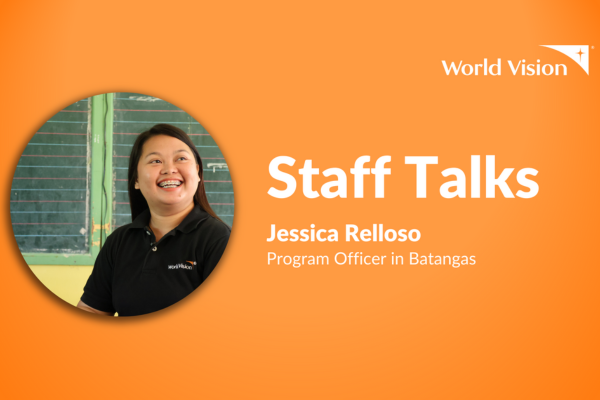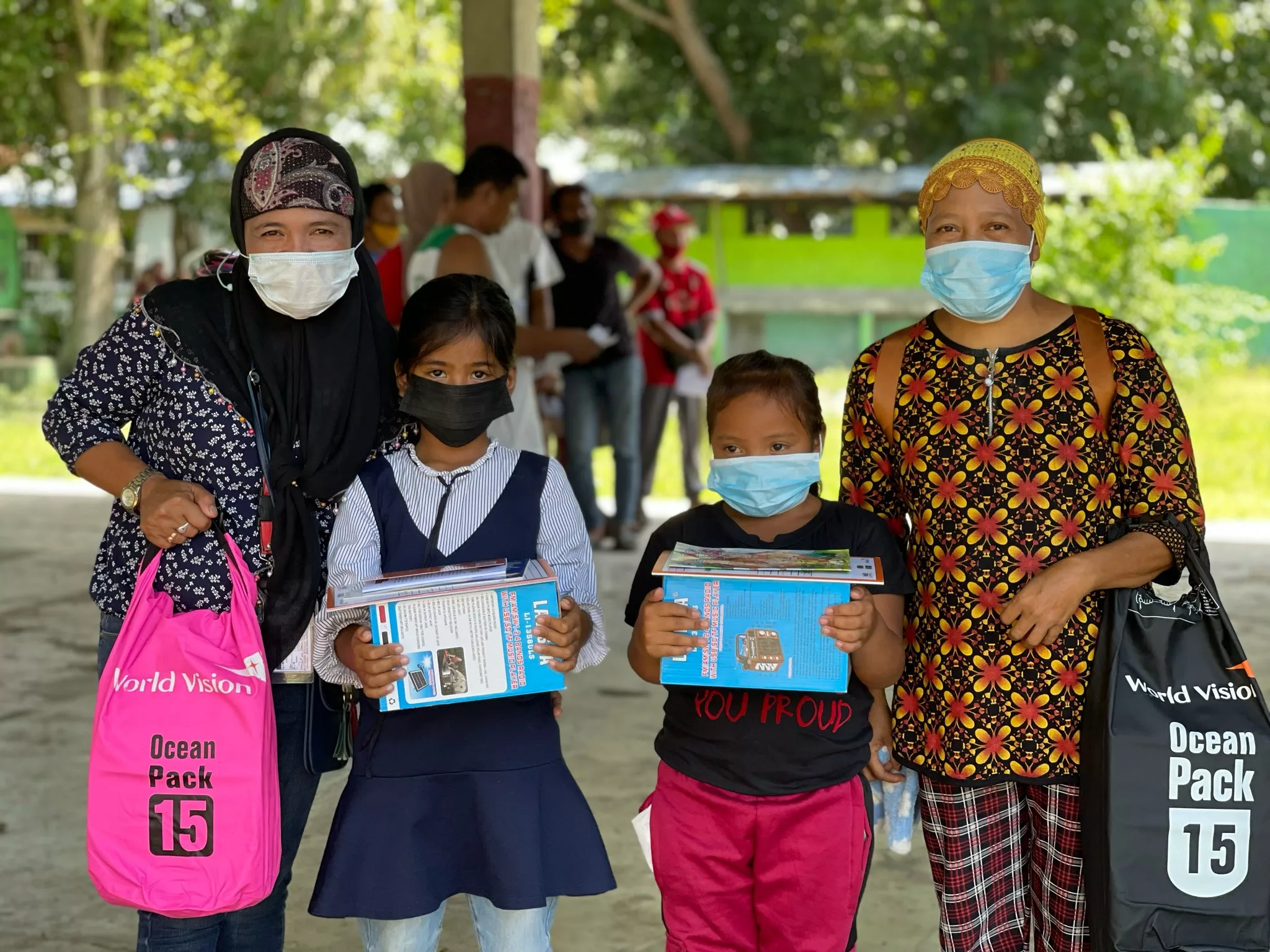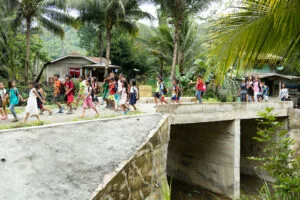Breaking the chain of violence
One look at her children and *Rina is convinced: no child or any person should fall prey to abuse or sexual exploitation.
“I did once. It shouldn’t happen again,” she says.
Rina had a good life before her step dad died of heart attack. Her mom had a hard time coping, so at 15, she had to take the responsibility. To pursue her studies, she became a house helper, a student and a provider to her five younger siblings all at the same time.
It wasn’t enough.
The lure of sex industry
Rina hails from Cagayan de Oro (CDO), one of the three provinces in Northern Mindanao that has high trafficking incidence. The Commission on Filipinos Overseas Task Force Against Human Trafficking 2008 report shows that 38% of trafficking victims are from Bukidnon, 35% are from CDO and 11% are from Misamis Oriental. Of the 138 cases recorded, 117 are children.
One time, Rina was introduced to the trade. Without any other choice, she started to work in a place that fronts as a massage spa. She was 16.
“I was receiving at least P1500 (30USD) for each customer, enough for me to go to school and send money to my family,” she recalls.
After the massage spa, Rina became a bar entertainer cum sex worker. At 21, she met her would be common-law-husband, got pregnant and eventually stopped college. What she thought would set her free took her to a more complicated world.
“I don’t regret giving birth to three beautiful children but I regret how I allowed their father to destroy us because of drug addiction.”
She adds, “When I was pregnant with our third baby, he came home under the influence of drugs. He took our second child who was only a year old, went out and only God knows what else he did.”
It went on for 10 long years. Knives being hurled at her became a way of life. The children, especially her eldest, 6-year old *Joshua, got used to fearing for his mother’s life.
Until 2016 came and their lives had a turnaround.
Turnaround
World Vision’s Teaching Health and Resilience to Children through Inclusive Values and Empowerment (THRIVE) project is an initiative funded by World Vision Germany to improve the resiliency of children to respond and recover from harmful conditions. It is implemented across CDO, Bukidnon and Misamis Oriental where World Vision has been doing development work for 16 years.
One of THRIVE’s key initiatives is to develop the caregivers’ resilience-building life skills so they could create a protective environment and be able to provide for their children’s needs.
“My life started to change when *Lara convinced me to join a psychosocial session called personhood,” shares Rina, referring to her friend who used to work with her in a bar.
“Finding a safe space to share my story gave me a new perspective and respect for myself. It’s different when you are repeatedly reminded of your worth,” she smiles.
In mid 2016, Rina braved her fears of not being able to provide for her sons and got out of the abusive relationship.
“That’s okay Ma. I’ll help you when I become a policeman someday,” Joshua would tell her.
World Vision also partnered with group of artists and other local organisations to facilitate arts session for children like Joshua. The intervention is co-facilitated by young adults aged 16 to 18 who were either physically or sexually abused in the past.
Beyond reaching out
“We understand that psychosocial intervention is not enough. These are women and girls who have families to feed,” shares Connie Quebada, THRIVE Project Manager.
Leveraging on partnerships, World Vision tapped government agencies like the City Social Welfare Development Office and the Technical Education and Skills Development Authority to provide a 6-month skill training like massage therapy, baking and pastry making. Rina and Lara chose beauty care and graduated in December 2016.
“I didn’t fully believe that it’s possible to start anew until this. I still cry about my past and my failed relationship but you helped me dream again,” cries Rina.
Rina started small. She got in touch with her old friends, used social media to market her skills. In the last three months, she’d had a good number of customers. She does hair cellophane, rebond, and other cosmetology works. Today, she earns at least P2000 (USD40) each week, allowing her to provide for her children without begging her husband or resorting to sex industry.
Mama now gives me P20 (USD.40) for my allowance, says proud Joshua.
“This livelihood intervention is one of World Vision’s best add-ons to its partners. We go to bars every night, talk to women and girls, accompanies them for social hygiene check-ups but it is still hard to keep them out of the industry. I can’t blame them because I was in their position once,” shares 55-year old *Raquel, one of the THRIVE volunteers and a member of Tingog sa Kasanag (Tisaka) – a local organisation that focuses on women and children who are survivor or at risk of prostitution, trafficking and abuse.
Ripple of change
“The commitment of CDO’s social welfare department and the coming together of all stakeholders is now producing good results,” shares Quebada.
Since the project started in October 2015, World Vision has reached more than 7,000 children and adults through awareness raising, resilience-building activities, livelihood programmes and psychosocial interventions. At least 100 child abuse cases have been responded to through community-based child protection mechanisms which includes Channels of Hope for Child Protection – a methodology that brings together faith communities to address harmful traditional practices.
“We trust that this initiative will continue to work towards the fulfillment of children’s rights,” Quebada adds.
“Why not?” smiles living proof Rina.
She was invited by Lara. Lara was reached out by her sister who also received intervention from Tisaka years back. Younger Rinas and Laras won’t have to be trapped in the sex trade and more Joshuas won’t have to live in fear of abuse and other forms of violence.
The chain is breaking, the ripple of change has started and it can’t be stopped.
*Names changed
World Vision/March 22, 2017
It Takes a World to End Violence against Children
Stay up to date with World Vision Philippines! Follow us on Facebook, Twitter and Instagram.








